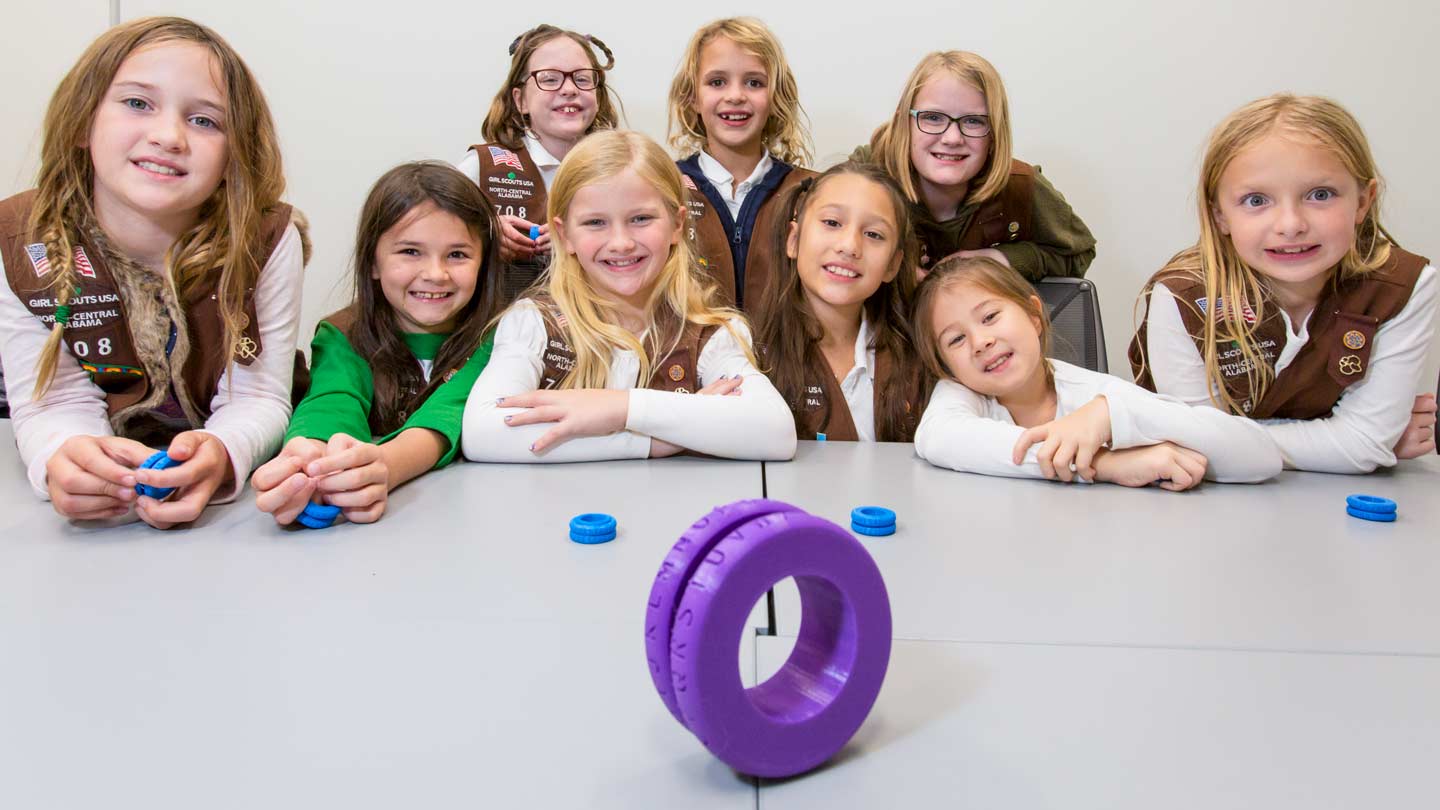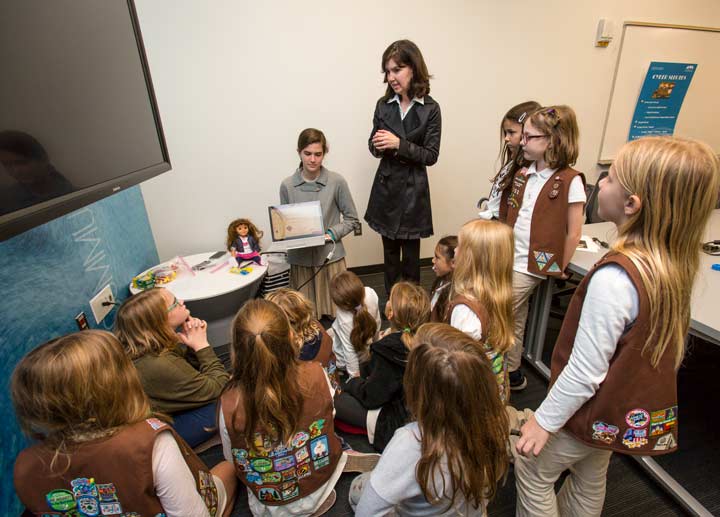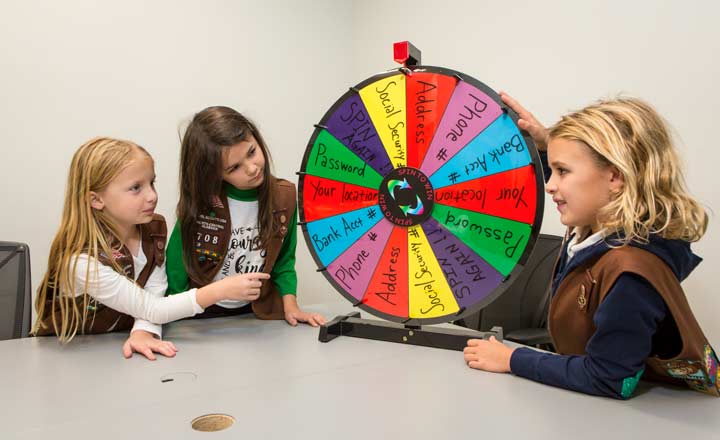
Girl Scout Troop 708 earned their Cybersecurity 2: Safeguards and Cybersecurity 3: Investigator badges after participating in a training workshop hosted by UAH's Center for Cybersecurity Research and Education.
Glenn Baeske
With an eye toward preparing the nation’s future cybersecurity workforce for the challenges that lie ahead, the Center for Cybersecurity Research and Education (CCRE) at The University of Alabama in Huntsville (UAH) recently provided training to enable Girl Scout Troop 708 to earn their Cybersecurity 2: Safeguards and Cybersecurity 3: Investigator badges.
"The Troop leader, Beth Crocker, told me about the cybersecurity badges and asked if I’d be willing to train them," says Sharon Johnson, who is not only deputy director of the CCRE but was herself a former Brownie. "So I developed the class materials and some hands-on exercises and quizzes using a list of topics provided by the Girl Scouts USA."
The cybersecurity badges are part of a new line introduced by the organization that focuses on the science, technology, engineering, and math (STEM) fields; last year, 23 new STEM and outdoor badges were added, while this year saw the addition of 18 cybersecurity badges and a series of space science badges. According to Sylvia Acevedo, chief executive officer of the Girl Scouts USA, the initiative recognizes that "future generations must possess the skills to navigate the complexities and inherent challenges of the cyber realm."

Sharon Johnson, a former Brownie who now serves as deputy director of the CCRE, discusses the importance of staying safe when going online.
Glenn Baeske
For Troop 708, the decision to pursue the badges was unanimously made by the girls themselves. "I have started allowing my troop to pick the badge work they are interested in," she says. "I am fortunate that my 13 third graders are almost all interested in science and technology. The girls love all the science stuff, and I love it that so many experts in the area are so willing to help teach my girls!" And while she herself is "not all that technically savvy," she says with a laugh, "I do like to learn new things."
Because the Girl Scouts had already earned their Cybersecurity 1: Basics badge, Johnson was able to dive straight into the training required for the subsequent two. For the Safeguards badge, which emphasizes staying safe when going online, topics included creating an online identity, determining what information should be kept safe, sharing information online safely, and figuring out who should be trusted online. For the Investigator badge, which tasks the Girl Scouts with solving cybercrimes, topics included cracking a simple code, identifying what is real and what is fake in photographs, understanding digital footprints, and learning how a computer virus spreads.
"We had a quiz at the end of each session, with five questions related to the Safeguards badge and five related to the Investigator badge, and they all passed with flying colors," says Johnson, who presented each of the girls with a specially made, 3-D printed badge to go along with the cloth patches they will receive from the Girl Scouts USA.

The Girl Scouts were tasked with trying to determine what information should and shouldn’t be shared online.
Glenn Baeske
This is not Johnson’s first experience bringing cybersecurity to a younger audience. She’s also the coordinator of the CCRE’s Expanding Cybersecurity Innovative Incubator to Extended Demographics (ExCIITED) program, which gives high school students in rural Alabama who have little to no exposure to the STEM fields the opportunity to gain insight into cybersecurity, leaving them more prepared for the demands of a cybersecurity-related degree program.
"We’re passionate about cybersecurity and sharing it with others," she says, adding that it’s especially important to her to bring more girls into the field. "We’re always looking for the female perspective in a technology field, so we want to encourage more women to participate in the STEM fields. They tend to be more detail oriented, to see the data from different perspectives and pick up on different clues that others might miss."
Given her successful training session for Troop 708, it’s likely she’ll now have the chance to train even more girls going forward. "Beth asked me if I would be willing to do this for all of the troops, given that there are more than 500 Girl Scouts in Madison alone," says Johnson. "I said, of course!"